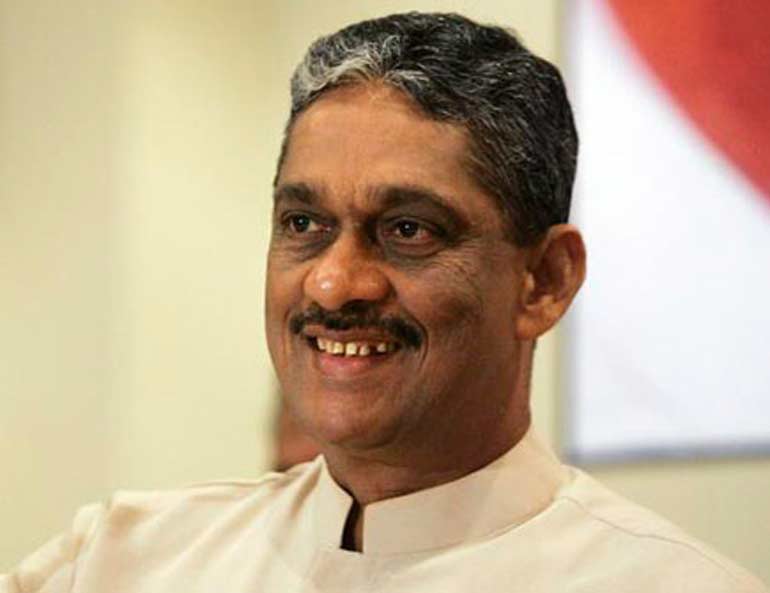Saturday Feb 21, 2026
Saturday Feb 21, 2026
Friday, 18 September 2015 00:03 - - {{hitsCtrl.values.hits}}
 Field Marshal Sarath Fonseka
Field Marshal Sarath Fonseka
By Shanika Sriyananda
Former Army Chief Field Marshal Sarath Fonseka, welcoming the new report released by the United Nations Human Rights Commissioner and its recommendation to set up a special court to investigate alleged human rights violations, said that he would fully support the investigation process to ensure justice.
Fonseka, who commanded the final military operations to eliminate the LTTE and end the 30-year-old conflict in 2009, said the Government had to assist the UN investigation and also needed help to bring the culpritswho had committed grave human rights violationsbefore the law.
“Justice has to be done for the people of this country. We don’t have to panic unnecessarily about the report or the investigations. We always can settle these issues one by one amicably, mainly to clear the image of our country,” he told the reporters at a media briefing held at his office in Pelawatte.
The UN report, identifying the patterns of grave violations in Sri Lanka between 2002 and 2011, has strongly indicated that war crimes and crimes against humanity were most likely committed by both sides to the conflict.
The report recommends the establishment of a hybrid special court, integrating international judges, prosecutors, lawyers and investigators, as an essential step towards justice.
“Our investigation has laid bare the horrific level of violations and abuses that occurred in Sri Lanka, including indiscriminate shelling, extrajudicial killings, enforced disappearances, harrowing accounts of torture and sexual violence, recruitment of children and other grave crimes,” UN High Commissioner for Human Rights ZeidRa’ad Al Hussein said releasing the report.
“Importantly, the report reveals violations that are among the most serious crimes of concern to the international community as a whole,” he added.
Fonseka, explaining certain allegations mentioned in the report, said some of the cases mentioned in the report had taken place during the final stages of the war when he was the SLA Chief but he was unaware of such incidents taking place under his command.
“Some of the cases mentioned like the killings of those who had surrendered, the assassination of the Parliamentarian Raviraj and disappearance and abduction of cartoonist PregeethEknaligoda also happened when I was the Army Commander. I think the Army and the military as law enforcement authorities have to face the reality,” he said, adding that the military should be in a position to answer the allegations reasonably and clear the minds and doubts of those who are accusing the military.
Fonseka strongly denied that human rights violations had taken place under his commandduring the final phase of the war. “All the divisional commanders leading the troops in the final battle had strictly followed my commands and there is no evidence that they overruled my instructions. But if somebody had given different instructions for some troops, they should be punished,” he urged.
Fonseka said that it was the responsibility of the Government to identify the culpritswho had committed the alleged human rights violations, based on credible evidence.
“I think nobody is in a position to reject the investigation now but everybody has to support to find out whether such human rights violations had taken place and who is responsible,” he said.
Fonseka also said that it was a good opportunity for the Sri Lankan military to clear its name on the alleged human rights violations and also to protect their image as a responsible and professional military.